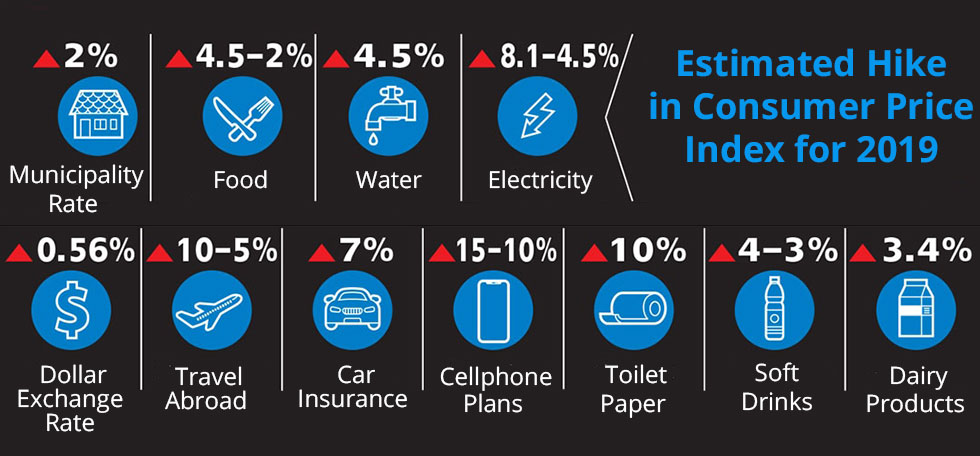
The cost of living in Israel, already one of the highest in the world, is expected to rise again in the new year, thanks to the strengthening dollar against the shekel and various government policies.
Electricity prices are the first in line to be affected due to a hike on tariffs for imported raw materials used to produce electric power. This is in addition to the NIS 7-billion reform of the electricity sector which will be financed by the Israeli taxpayer over the next eight years.
The Electricity Authority announced last week that starting in January 2019, tariffs will be raised at a rate ranging from 4.5% to 8.1%, depending on the household wiring and consumer demands. On average, electricity bills will go up by 6.5% — roughly an additional NIS 300 on the average annual electricity bill.
The increase, which will take hold in the midst of the Israeli winter, would hit the elderly, who are more likely to use heaters and radiators, and are already struggling to pay their electrical bills. The increase in bills is therefore likely to force some pensioners to cut down on other items in order to balance their budgets.
Water prices are also expected to increase next year by some 4.5%, due to investment in water infrastructure due to a drought now in its fifth consecutive year. This means the average Israeli household paying on average NIS 100 more on their annual water bill.
In addition, the municipal rates are also expected to increase by an average of 2% in January, increasing the average annual bill by up to NIS 150.
The rise in electricity and water bills will trigger further price increases, as producers pass on their additional costs to consumers. Companies no longer appear to fear consumer reactions as they have for the past seven years, following the social justice protests that erupted back in July 2011.
A spike is also expected in food prices, with Israel's largest foodmaker Osem announcing that a third of the company’s products will cost more in 2019.
More bad news maybe ahead too for consumers. The euro keeps strengthening along with the dollar, which could trigger an increase in the cost of clothing imported by European brands, as well as overseas travel. Israeli cell phone service providers have also announced a 10% increase in the cost of phone plans.

















